|
Pete Consigli, the Global Restoration Watchdog, and Jon Isaacson, The DYOJO, are joining forces to produce a one-day workshop offering education and networking on the topic of Lesson Learned from Storm Response and Hurricane Recovery. Tickets are available for in-person attendees as well as online via Zoom for remote participation. Lessons Learned from Storm Response and Hurricane RecoveryWinter Break 2023 Post-Conference Hurricane Workshop Hilton Naples Florida: Thursday, January 26th, 2023 5111 Tamiami Trail North - Naples, Florida Workshop Host: Jon Isaacson - thedyojo.com Program Facilitator: G. Pete Consigli - Industry Adviser & Historian Storm Response Workshop Speaker List
Hurricane Recovery Workshop Agenda7:30-8:30am: Registration, Sponsor Set-up, Continental Breakfast 8:30am: Welcome, Opening Comments, Introductions Pete Consigli, CR, Jon Isaacson, Cliff Zlotnik, CR, and Ashley Easterby First Round Morning Sessions: The Legal and Risk Management Panel: On Zoom from Orlando! “The Legal Eagles: David Popper & Justin Petersen: “The Risks and Legal Requirements to Contracting in Florida”: DPBR Licensing & Regulations for “Storm Chasers”! The Remediation Panel; In Person Michael Symula, IEP (Assessment) & IAQ Josh Winton, CIE (Remediation) “Hurricane Ian Case Studies an IEP Perspective: “What we had, what we did, what happened and what we learned?” “Working with IEP’s & 3rd Party Consultants: Best Practices for Secure Containment & Clearance on PRV the FIRST Time!” 10:15-10:30am: Mid-Morning Break Second Round Morning Sessions: The Restoration Panel: In Person Bob Blochinger (Flooring Consultant) & Casey Clark (Full-Service Contractor) “Effectively Working with a 3rd Party, Roles & Goals, A Road Map to Win-Win!” “A Restoration Contractor’s Insider Secrets: Mobilizing, Responding, Mitigating, Recovery...AND getting Paid; after a Catastrophic Storm!” “A Special Preview and Industry First by Kris Rzesnoski, CR: In Person” A Ted Talk, Encircle Research Data on: “Lessons Learned from Hurricane Ian” “Shane Bailey on Marketing to Property Owners & Managers”: In Person “Using a Before the Storm Strategy to get a Foot in the Door: A Mechanical Contractor’s Perspective to Documentation of the Building Envelope and Systems” Noon to 1:00pm: Intermission: Buffett Lunch, Networking & Sponsor Demos On-site 1:05pm: Welcome Back! First Round Afternoon Sessions: “The Restoration Lawyer, Zooms in from Southern California!” RIA’s Advocate Ed Cross: A National Perspective to Chasing Storms, Risks vs. Rewards, A Do and Do Not Do Checklist to Avoid Pitfalls & Get Paid On Time!” Moderated Interactive Q&A: The Restoration Lawyer: In person and On-line chat Log The Science Panel: In Person Ralph Moon, PhD, and Jeremy Beagle, CIH,” Just the Facts on Research, Being Deposed and Dealing with Experts and Plaintiff’s Sharks! “You Finished the Remediation Project with a Happy Client...Until you get the Call, Houston We Have a Problem!”: A presentation of a peer reviewed IICRC Journal article on, Mold Growth After Effective Remediation! “A Certified Industrial Hygienist’s Perspective on: Qualifying IEP’s, Complying with Industry Standards & Strategies for Sampling, PVR, and Project Oversight & Clearance” Moderated Interactive Q&A: The Science Guys: In person and On-line chat log 3:15-3:35pm: Mid Afternoon Break 3:40pm: Welcome Back! Second Round Afternoon Sessions: The Insurance Perspective: Peter Crosa, AIC, RPA: On Zoom from Ft Lauderdale! ” An Independent Insurance Adjuster’s Perspective: The State of the Property Restoration Industry, Middlemen, Hitmen & Widow Brown, What is a Restorer to Do?” Moderated Interactive Q&A: “Addressing “Hard Questions!”: live & on-line chat log The Round-up: IAQradio+ & The DYOJO Collaborate with the In-person and On-line attendees for an Open Forum with the In-Person Speakers. Round-up Facilitator: Pete “Restoration Global Watchdog” Consigli Special Guest Moderator Panel: “Radio Joe” Hughes, Cliff, “Z-man” Zlotnik, Jon ‘Intentional Restorer” Isaacson and Ashley Easterby, The Aussie from Down Under! 5:20-5:30pm: Wrap-up, Closing Comments and Adjournment; Consigli and Isaacson Winter Break 2023 Events & SpecialsEARLY BIRD DISCOUNTS:
CONTINUING EDUCATION CREDITS: EVENTS: PLEASE NOTE this workshop follows the Andrew Ask Building Science Symposium (AABSS2023), aka Winter Break 2023.
LODGING: If you are planning to attend Andrew Ask, you will want to book your room at the Hilton Naples with the AABSS2023 Room Rates ASAP - After Dec 31st, the Andrew Ask conference registration fee goes up $100 and the room block rate will go up per market price and availability Disaster Response Workshop SponsorsThank you to our SPONSORS, reach out to The DYOJO if you are interested in sponsorship:
Lessons Learned Workshop Media PartnersMEDIA SPONSORS:
MEDIA SUPPORTERS:
1 Comment
At the end of 2021 we formed the Fellowship of Construction Knowledge and Entrepreneurial Development with a simple idea, get local contractors together to connect, collaborate, and conquer on their shared challenges. Coming out of the shutdowns, many professionals expressed a desire to return to in-person gatherings for education and networking with their peers. We put the idea to the test and have proven this to be true. Regular meetings occur the second Tuesday of every month and will resume in January of 2023. These meetings are primarily discussion based as business leaders shared that they enjoy bouncing ideas off and learning from their peers. Each meeting has a topic so that participants can come prepared to discuss and engage.
Prior discussions have included:
If you are a contractor or insurance professional in Washington State or the broader Pacific Northwest (PNW) we encourage you to join The FoCKED mailing list by filling out our interest form and check the calendar on our website regularly for updates - thedyojo.com/focked On Episode 95 of The DYOJO Podcast we discussed A Tale of Two Contractor Litigation Scenarios.
These are two very different litigation experiences. We discuss some of the ways that they are similar and mostly the areas where they diverge. We highlight some of the important lessons contractors can learn from both scenarios. Guest Whitney Wiseman, a contractor out of Palm Springs, Florida joins us to share his insights. He reminds his peers in property restoration, "We are a specialized trade in the construction industry. We all should act like contractors. We should be professional in our state as our state regulates us to. And we should utilize everything that is in our power in order to protect ourselves from a customer screwing us over." Tale #1: RJ Construction v. AI School DistrictOn prior episodes of The DYOJO podcast we've been talking about a case out of Texas. One of the local news broadcasts summarizes this litigation tale in this manner, "An Arlington construction company says it worked around the clock last February [2021] to clean up a flooded school. Months later it says it has yet to be paid." This is in reference to Robert Jordan Construction (RJC) versus the Arlington Independent School District (AISD). In this case, Robert Jordan Construction responded to flooding after Winter Storm Uri hit the area in 2021. RJC thought they had an agreement about the scope and the cost, but they discovered (or ignored) that was not the case. We've been unlocking as many of the pieces to that story as we've been able to find in the court documents and public records. So it's brought to light some questions, some teachable moments for contractors, especially for those who are new or newer to larger projects. On an insurance claim project like this one, there are multiple parties are involved. It's not just the customer, the insurance company, and the contractor. Whitney Wiseman reminds contractors, "What we're talking about today, which I think is so important," is for all contractors to, "Do your job. Do your documentation. Be transparent. Be a stand up contractor. If you do those things, you shouldn't end up in a situation like homeboy did out in Texas." Tale #2: Conway Construction v. City of PuyallupTale number two is a case that came across the desk here at The DYOJO Podcast. It's called Conway Construction versus the city of Puyallup. Some of you may recognize that is the town that I currently reside in. It's just outside of Tacoma, which is just South of Seattle in Washington State. Are you aware that when a contract is terminated, there's two terms under which it can be terminated:
These distinctions are something that all contractors should be aware of and ensure they are addressed in their contracts. There needs to be specific language that outlines what happens if the customer finds a defect or is unhappy with the performance of the contractor. Language should include a description of the notification process as well as how the contractor will respond. Usually the customer is responsible to notify the contractor of a defect in writing. The contractor will have X number of days to come up with a remedial plan that is agreeable to all parties. If the issue isn't resolved with the corrective actions, or if the parties can't come to agreement, then the contract explains how the process will proceed. One of the most important things any contractor and customer can do to avoid litigation is to agree on a process for how disagreements will be resolved. In the event that the worst happens, how will both parties terminate the agreement with the least amount of collateral damage? If the customer is going to terminate the contract for cause, there is a process. Every contractor should have a conversation with their client explaining that if they believe there's something wrong with the project, the contractor has first rights to try to remedy the issue. A quality contractor wants to make things right. If this process is outlined in the contractual agreement but the customer doesn't follow that, as the City of Puyallup didn't follow their own contract, then they may surrender their default claim. Most contracts can be terminated at will, or for convenience, as long as no bad will is in play. So a customer doesn't need a reason to kick a contractor off of a job but they will need to follow the termination for convenience process outlined in the contract. Especially, as was in the case of Conway v. Puyallup, if the customer was the one that drafted the contract terms. This case reminds contractors and customers to be aware another item which is "the plain and ordinary meaning" of the words utilized in the contract. The Supreme Court of Washington emphasized when the contract terms are clear, the court will enforce it as written. As a contractor, it is important that a non-legal person can read and understand the contract. Two Types of Contract TerminationWithin the contract between Conway Construction and the City of Puyallup, it stated that a termination for convenience would entitle the contractor to greater damages than if it was terminated for cause. Under the agreement, a contractor terminated for convenience was entitled to be paid for all actual work performed until the date of termination. While the city terminated the contract claiming it was because of the contractors alleged breach of the agreement. When the trial judge reviewed the facts they ruled that the termination was not for cause. Since the termination was not for cause, the contract terms converted the termination of Conway Construction to one for convenience. The Supreme Court of Washington ultimately affirmed that decision. The high court reached this conclusion simply by reviewing the plain language of the contract. The termination for cause could only be based on defective work if the contractor neglected or refused to correct rejected work. This mutual agreement further provided that upon 15 days written notice the contractor had to remedy the work to the satisfaction of the city. If the reader has been following our review of RJC vs. AISD, they will note that the facts of this Conway case vary significantly from those outlined in the Robert Jordan court documents.
A contractor should document everything from the agreements that they make, the conversations that they have with any party to the project, and any essential communication related to defects, defaults, and remedies. A typical communication (or Comms) log, such as those we have recommended before on the podcast, might include:
The contractor in this case was able to document that it took steps to remedy the alleged defaults and reached out to the city to determine if the corrective efforts were sufficient. The city however, refused to meet with the contractor. The trial judge therefore found that the contractor was not neglecting or refusing to correct the defect and that the city's failure and refusal to meet with the contractor to discuss the remedial actions was unreasonable or made in bad faith which had the effect of making the termination one for convenience rather than one for cause. The court stated their decision was thereby bound by the terms of the contract. Customizing Construction ContractsRegular listeners will remember Bebo Crain form our prior discussions regarding RJC v. AISD. Bebo believes, "You gotta adapt your situation. Each project has different amounts of risk and the protections [in your contract] depend on the amount of risk. I recommend getting a lawyer that will sit down with you to write a contract for your situtaion. You write out the things that you have done wrong and identify those as your risks. As more risks come you will work with your attorney to add those to your contract. It can be an evolving contract. As you obtain more situations that you feel you might be entering risk and learn how to hedge that risk with your contract and your disclosures." These two litigation scenarios remind contractors of a couple of key elements:
A contract is agreed to by both parties. In the RJC case one of the arguments is whether there ever was an agreement in place. In the Conway case, the contractor signed off on the process of default and made a good faith effort towards addressing the issues that the customer brought to their attention. In the RJC case we shared a news clip that says the school district is asking for documentation that the contract says doesn't exist. In the Conway case the contractor documented their process all the way through the project. Their documentation was sufficient enough that it held up in court. Conway was able to show they were within the terms of the agreement. According to court proceedings in the Conway case, the customer came to the contractor with the defect issue(s). Upon 15 days written notice the contractor had to remedy the work to the satisfaction of the city. The notice from the customer was to be in writing. It is usually in everyone's best interest to attempt to settle a disagreement prior to going to court. In Conway, the contractor received notice, made the corrections, and documented their follow through. It is important to be able to present documentation of agreements, phone calls, emails, text messages, meetings, and any other form of communication with the client. The contractor showed:
The contractor can say, we understand the language of the contract, we did the right thing, because we followed through with the remedial action, and we documented our processes. The court read the agreement, saw the facts, and concluded that this termination was no longer for cause. In this case the language of this contract was dictated by the city. This is often the case for government work, where the government entity presents the bidding terms as well as the terms of the agreement. The contractor should therefore carefully read their agreements, especially when the agreement is drafted by the other party, and understand all of its terms before signing. Then if the dispute arises, the contractor can use the plain language of the contract to argue in support of its position in the dispute. Learning From Contractor PodcastsFrom the feedback we have received on our podcast, contractors enjoy hearing other contractor's stories. It can be helpful to hear from someone else who has been there and done that. It is good for contractors to shorten their learning curve but they should understand that they cannot outsource or replace their learning curve. Gaining experience and adapting your operating procedures are critical to building a sustainable business. Whitney Wiseman encourages restoration contractors to, "Reach outside of social media. Find individuals who excel in their space. Make sure that you learn as much as you possibly can from these individuals who are not trying to make money off of you and truly want to be your mentors." Mr. Wiseman paused during our discussion because he sees an issue. He says, "I see more mentors in our industry right now that want to make money off of everybody who's green, then I do individuals who are just willing to help. And to me, that's sad, because I came up in this industry where there were people who would answer their phone, give me the advice that I need, and it was free. But right now it's a weird world." While Whitney advises that contractors are cautious with whom they trust, he also says, "There's a lot of people, though, that can really help you to be the best in the industry. Reach inside the industry for those people. But, when it comes to contracts, when it comes to business, when it comes to all these other things, get as far outside of this industry's mindset as you can and started attacking it as a professional. For instance, we [property restoration contractors and claims professionals] are a specialized trade in the construction industry. We all should act like contractors. We should be professional in our state as our state regulates us too. We should utilize everything that is in our power in order to protect ourselves from a customer screwing us over. At no point in time should we use these shortcuts in order to gain success because I can guarantee every single person the long road is worth it every single time versus the shortcuts. Learn from my mistakes." Lesson Learned from Storm Response WorkshopIf you would like to be in person with people that are experts in the industry that have years and years of experience, and are sharing their stories, join us Thursday, January 26, 2023. The DYOJO is traveling to Naples, Florida, for the Andrew Ask Building Science Symposium (aka Winter Break 2023). Andrew Ask runs Tuesday and Wednesday, then separate from that but at the same location, Pete Consigli and Jon Isaacson will be putting together a one day workshop titled Lessons Learned from Storm Response and Hurricane Recovery. Be there or be square.
In our latest video from The DYOJO Podcast we discuss three things:
Overcoming the fear of creating contentIf you have something on your heart that you want to share with your industry peers, we want to encourage you to HIT SEND. I was talking to some industry professionals earlier this week about creating content. There are several of you that I've talked to that have the content either ready to upload articles, books, videos, or podcasts. You're ready to hit send, but for whatever reason, you have not. Too often what we hear about as professionals is the finished product. Whether we are scared to share or have been stymied into silence by success, we should encourage and seek out stories that help us see the process that led to the outcome." What I'd like to relay to you is a little piece of the story that I shared in an article called Creating Impactful Content, which has been published through Property Casualty 360. I shared a personal story about some excellent advice that Rachel Stewart, author of Unqualified Success, gave me. If you have not read her book yet, it's one of the best in the self-help category that I have read. I am happy to report that it's from the property restoration industry. One day, after reading her book, we had a call. If we had not made contact, I my first book may not have happened or would have taken a lot longer to be published. During our conversation, I was sharing that I wanted to write a book but didn't know if I had unique content to share. I am paraphrasing her response, but she said that there is no unique or new content, there's only your unique experiences, approach, and applications of those principles. This simple truth was very freeing to me and it's good advice for anyone who has something they want to share. What is impactful about your story or my story is exactly that, it's our story. When you can share, "These are the issues I faced, these are the creative solutions that our team came up with, and this is how we've seen those ideas either just flame or make a positive impact in our company. I believe this is the key to good, impactful content. Most of the positive feedback that we get from our podcast is that people are encouraged to hear the real-life stories of their peers. It's encouraging to hear someone say that they've been there, they've done that, and lived to tell about it. You can help others shorten their dang learning curve by sharing the lessons that have shortened yours. Working with the right mentorsAll these half assed contractors out there, who are not doing things properly. Who are not following your own SOPs. Who are not creating systems and things in place to protect yourselves. You're only hurting the industry and yourself. Stop it, get smart." - Whitney Wiseman We want to shorten our dang learning curve, but there's no replacing it. We want to thank Whitney Wiseman for joining us for a recent conversation. We are going to share some of his thoughts on working with the right mentors and coaches for your business. Whitney advises, "Reach outside of social media, find individuals who excel in their space, and make sure that you learn as much as you possibly can from these individuals." The way he sees it, too many in the coaching space are looking to make money rather than being a resource and helping the industry. He says, "I see more mentors in our industry right now that want to make money off of everybody who's green, then I do any individuals who are just willing to help. And to me, that's sad, because I came up in this industry where there were people who would answer their phone, give me the advice that I need, and it was free. But right now, it's a weird world." If you are new to the industry, you may have felt the same way. Mr. Wiseman is not saying that there are no good coaches or mentors, rather be wise in how you determine who you are going to work with. "There's a lot of people, though, that can really help you to be the best in the industry. Reach inside the industry for those people." He believes that a lot of good also comes out of looking outside of "the box" or the mindset of a given industry. For example, "When it comes to contracts, when it comes to business, when it comes to all these other things get as far outside of this industries mindset as you can and started attacking it as a professional. For instance, we are a specialized trade in the construction industry. We all should act like contractors and we should be professional in our state, as our state regulates us too. We should utilize everything that is in our power in order to protect ourselves from a customer screwing us over. At no point in time should we use these shortcuts in order to gain success, because I can guarantee every single person that the long road is worth it every single time versus the shortcuts. Learn from my mistakes." Learning from each others mistakes is an excellent way to shorten our dang learning curves. As we said in the segment above on creating content, if you have experiences to share of ideas that worked, and even those that failed, these can be impactful to your peers who are also learning to succeed. Preparing for courtFor episode 94 of The DYOJO Podcast, we asked Bob Blochinger, "If someone were to call themselves an industry expert, what would your expectation be of their like credentials and experience be?"
Bob may have the quote of 2022 when he shares, "An expert is somebody who knows what he's talking about through experience, training, and education. I call it a pyramid of training, education and experience. You cannot become an expert without all three." He calls this a pyramid of expertise. As a flooring expert, Mr. Blochinger is no stranger to the courtroom, he has been called upon as an expert witness multiple times. He states that an expert is expected to answer, "Whatever questions or explore bugs or problems or whatever exists that needs explanation or evaluation." We have heard it said that if you can't explain it to an elementary aged child, you don't really know what you are talking about. In the courtroom, Bob says an expert, "Needs to know what he's saying and how to explain it so a regular person understands. For instance, when you sit in a court in the witness stand and you get grilled by the opposing attorney, you do not have notes in front of you, you do not have a book, you do not have photographs, but you have to ask answer all the questions." If you have developed mastery through experience, training, and education you will come across as intelligent. The Federal Rules of Evidence 702 outlines the Daubert Standard whereby a witness who is qualified as an expert via their knowledge, skill, experience, training, or education. An expert may testify in the form of an opinion or otherwise, if a their scientific, technical or other specialized knowledge help "the trier of fact" to understand the evidence or to determine a fact in issue. The Daubert Standard is also a great metric for determining information that you are receiving as a profession is relevant and reliable. When you receive information from industry leaders, influencers, or experts, you can more effectively ask, "Is this relevant to my situation and does the advice rest on a reliable foundation?" In court the testimony must demonstrate that it is based on sufficient facts or data. The opinion of the expert should have been demonstrated to be the product of reliable principles and methods. This affirms that as professionals we want to apply a scientific method or methodology to the processing of information for determining what advice is reliable. A scientific methodology helps us determine whether the theory or technique employed by an "expert: is:
That last point is interesting as we want to eliminate confirmation bias. Just because we hypothesize something, we then need to guard against our inclination to only present the information that supports our hypothesis. We have to be open to our hypothesis being wrong, or we are not being scientific. As an expert witness the professional must demonstrate that they have reliably applied the principles and methods to the facts of the case. How important is this in our professional journeys? When I am reading industry publications like C&R magazine or Cleanfax, I find myself listening for those people who have been there, done that. Those who have a problem, discussed it with their team and said, "This is a creative solution that has worked for us." Mr. Blochinger closes our discussion with these insights, "You need to know what you're talking about to be labeled as an expert. Commonly people say, 'Well, I'm 50 miles away, so I must be an expert.' It doesn't work that way. You don't become an expert without years of training, experience, and education." We would like your feedback on the content that The DYOJO creates to help contractors shorten their DANG learning curve. You can fill this out anonymously if you prefer. *One entry per person I just wanted to make you aware, if you are on The DYOJO mailing list, I have sent out an end of year survey. We'd love to get your feedback what we're doing well as well as what we could improve in our content delivery.
If you consume podcasts, especially those that are for free, one thing you could do that helps any podcaster out, whether it's our podcast, one of the many great podcasts from within our industry; whether it's YouTube, iTunes, Spotify, all of the above,
On The DYOJO Podcast Episode 94 I read a review. The input advised that we should be more like all the other podcasts. I do take in the input. I know for the longest time, we've had a lot of trouble getting the audio correct. I have fixed I believe most of that. Currently a lot of the feedback from the most vociferous listeners of our podcast are asking for us to dial it back on some of the craziness. Their voices are going to be the ones that get heard and I will have to consider and contemplate whether I need to alter anything. So, if you listen to The DYOJO Podcast and you like the craziness, now is the time to speak up. If you have some constructive feedback, we want to hear it. A one star and a three star review have equal value to a five star in the sense that it gives feedback to the artist. Once you leave feedback, you should loop back to see whether the content creator is receiving your feedback. Remember, we are creating content delivered to you for free. Your feedback is appreciated. Your feedback is read and listened to. I already have several people that have reported back in from The DYOJO End of Year Survey that we sent out. So thank you for that. Your input is helpful. You can find the link to this survey above. Everyone who starts a business knows profitability is important, but too often contractors treat it as optional. This podcast goes along with a recent C&R article titled "The 4 Modes of Profitability for Contractors." It was the first in a series to attempt to help new entrepreneurs, in-progress contractors, and aspiring persons in a position of leadership to better grasp the essential nature of overhead and profit (O&P) within the skilled trades. If a contractor charges for some level of overhead and profit (O&P) they will have a fighting chance every year and will be ahead of many of their competitors." - Jon Isaacson In this episode of Restoration Today, Jon Isaacson, the author of the first article and orchestrator of the entire series, walks through how contractors can help themselves and their team members form better mindsets and habits as they think through the four modes of profitability for contractors.
The video and article discuss The 4 Modes of Profitabliy for Contractors:
This is the first in a series of articles; upcoming features in C&R Magazine will include input from Ben Justesen, Anthony Nelson, and Ed Cross. Ben will help contractors to understand their numbers and incorporate them into their true labor burden (Labor + O&P). Anthony will share his vast experience in tracking material, equipment, and other cost realities to more accurately incorporate these items into your estimating process (Materials + O&P). Ed Cross has some exciting news to share from the frontlines of overhead and profit collection. All of these concepts will help contractors to determine the appropriate markups (what you add) to achieve their margin (what you make) goals. |
Words
The DYOJO - helping contractors shorten Archives
June 2024
Categories
All
EstimatingMarketingInsurance ClaimsLeadership |
|
| |||||||

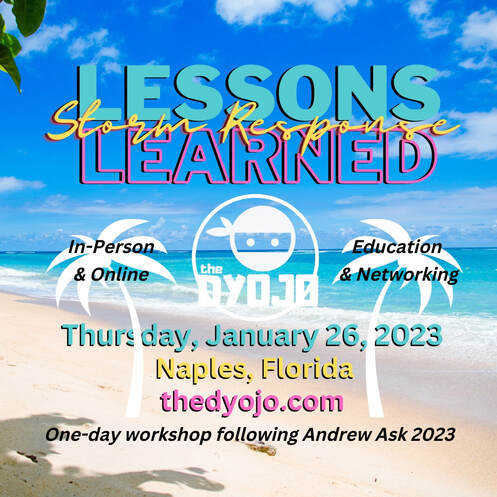
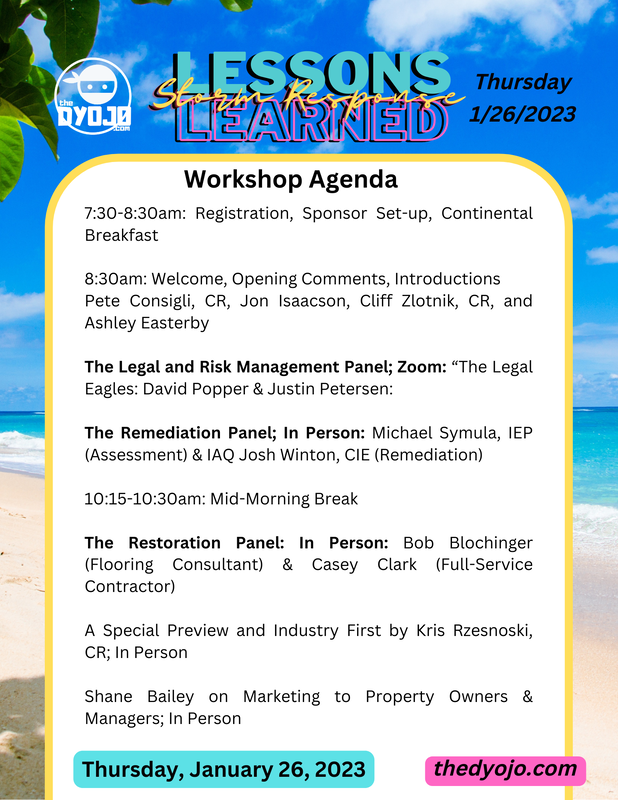
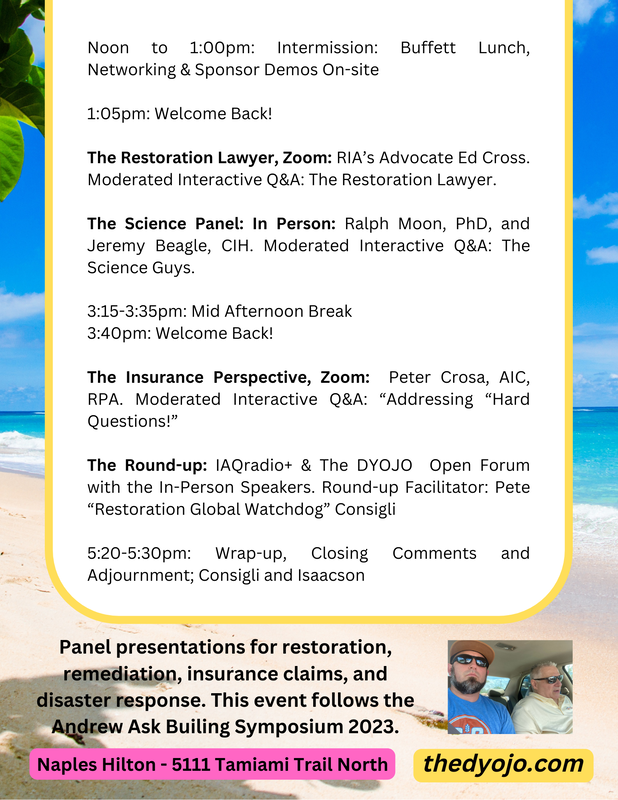

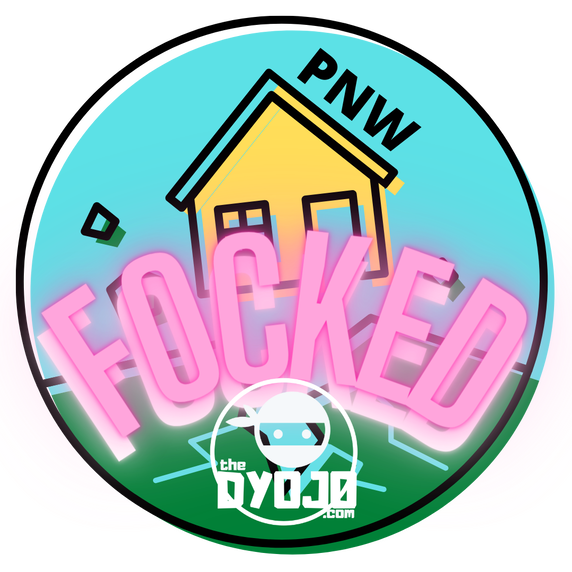
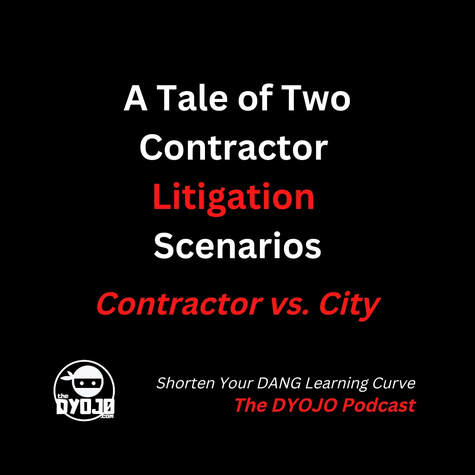
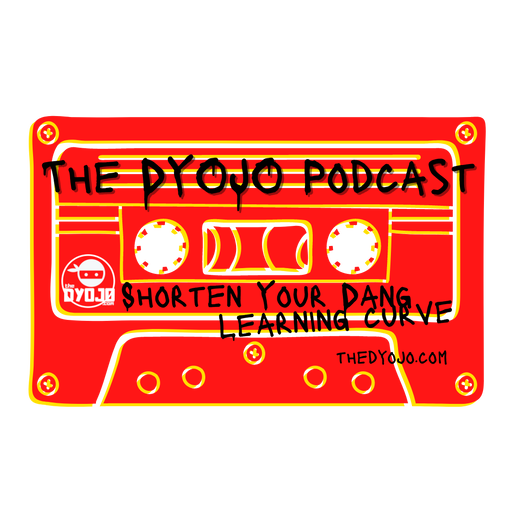
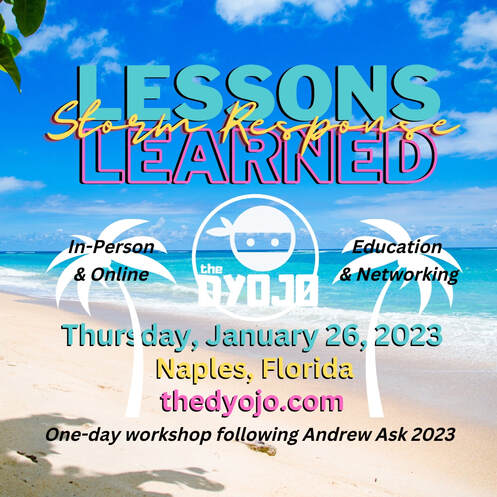
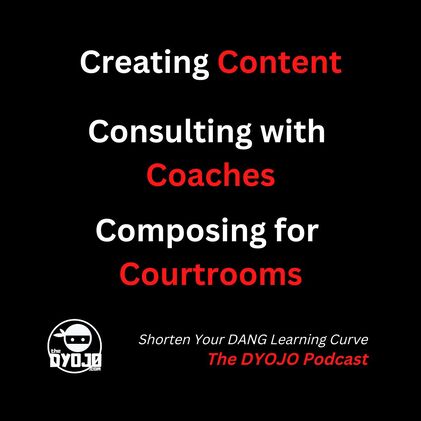
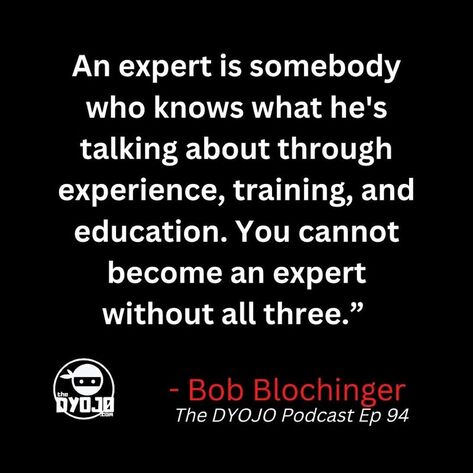

 RSS Feed
RSS Feed
